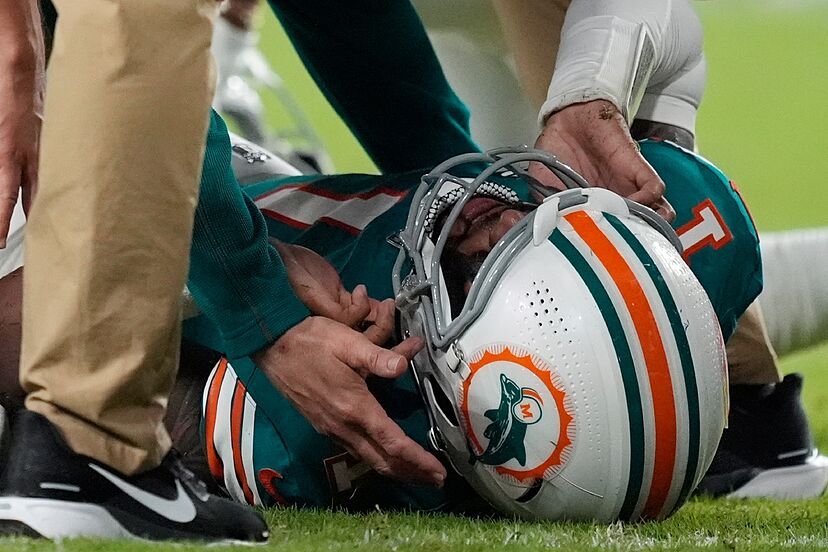Title: An up-close look at Tua Tagovailoa’s retirement and what it means
The sports world was shocked to learn that Tua Tagovailoa would be retiring from professional football. Hailed as the NFL‘s future, his career has been tainted by injuries and growing worries about player safety. The quarterback made his choice in the wake of multiple concussions that raised questions about the long-term impacts of head trauma in sports.

Tagovailoa has had a lot of difficulties since joining the league, including injuries that kept him out of action for important games. Talks concerning the psychological and physical costs of professional football have been sparked by the accumulation of these health problems. Tagovailoa’s retirement highlights the need for better league policies and support systems in a time when athlete welfare is becoming more and more important.
The player did not make this decision lightly, according to people close to the player. Tagovailoa has stated that he would prefer to put his health and wellbeing ahead of the demands of a hard-charging professional life. His decision to step away rather than jeopardize his future for the game he loves has left some fans heartbroken, but others admire his bravery.
This situation raises broader questions: How can the NFL better protect its players? What measures can be taken to ensure that athletes do not feel pressured to return before they are ready? Tagovailoa’s retirement serves as a critical reminder of the need for a culture shift within professional sports—one that prioritizes health over spectacle.
In the end, Tua’s decision might lead to a safer future for all athletes as the sports community considers his legacy. Problems with stress management and mental health may result from his off-field decision.
